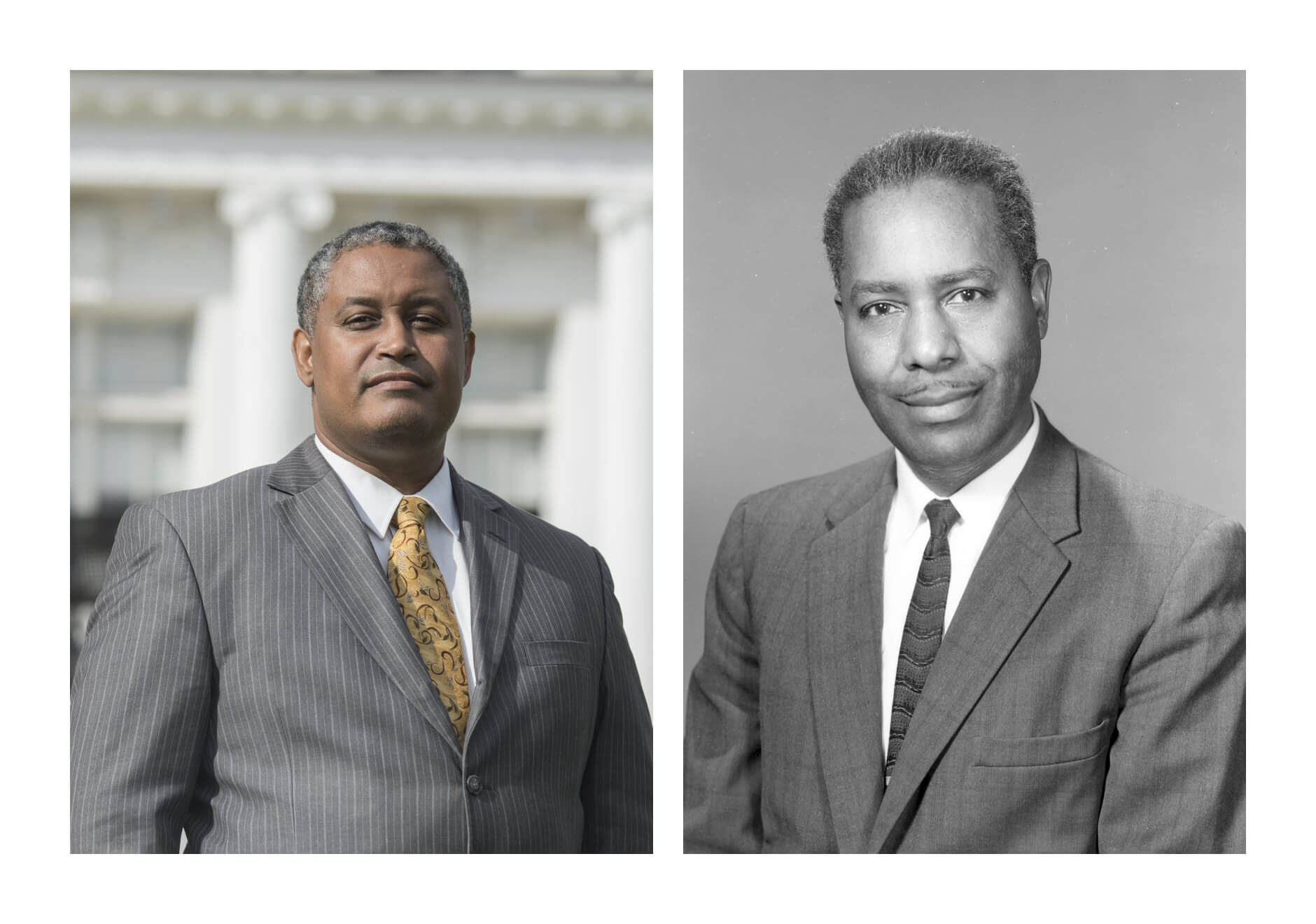Monmouth University will dedicate additional financial support for the Dr. Walter S. McAfee ’85HN Endowed Scholarship in Science in recognition of the leadership, advocacy, and scholarship of Walter D. Greason, Ph.D. Greason, a historian, urbanist, author, and educator is the former chair of the School of Education’s Department of Educational Counseling and Leadership, and former dean of the Honors School, where he was the first African American to serve in each role at Monmouth University.
A Monmouth County native, Greason used his influence and expertise to educate students and leaders about the economic history of enslavement and segregation as well as to ensure the preservation of African American culture in the state of New Jersey.
Greason graduated from Villanova University in 1995 and completed his doctoral studies in history at Temple University in 2004. He came to Monmouth University in 2012 to teach business and economic history. Greason has authored or co-authored several books: “Industrial Segregation”; “Cities Imagined: The African Diaspora in Media and History”; “Suburban Erasure: How Suburbanization Ended the Civil Rights Movement in New Jersey”; “Planning Future Cities”; and “The Path to Freedom: Black Families in New Jersey.” He also contributed to “The Land Speaks” and “The Encyclopedia of Black Comics.” His scholarship informs four major areas of emerging interdisciplinary study: racial segregation in global suburbs; the social history of capitalism; the media ecology of Afrofuturism; and the pedagogy of the digital humanities. Greason is currently professor and chair of the Department of History at Macalester College, St. Paul, Minnesota.
While a faculty member at Monmouth, Greason was an integral part of campus discussions that led to changing the name of Woodrow Wilson Hall to the Great Hall at Shadow Lawn. As department chair, Greason designed and launched the Instructional Technology Lab at the Graduate Center for the School of Education, while leading the implementation of the Doctorate in Educational Leadership for Higher Education program in 2019. He was an advisor on the development of the Intercultural Center. He contributed to the development of a Social Justice Academy and served on the committee to hire its inaugural director, Nicole Pulliam, Ph.D. Outside of Monmouth, he served as president of the T. Thomas Fortune Cultural Center in Red Bank, New Jersey, with responsibility for leading the multi-million-dollar campaign to restore the National Historical Landmark and Fortune’s place in American and world history.
Greason also supported efforts to fund the Dr. Walter S. McAfee ’85HN Endowed Scholarship. McAfee was a distinguished pioneer and scientist in the fields of electromagnetism and radar. Born in Ore City, Texas, McAfee, an African American, graduated from Wiley College in 1934 with a bachelor of science in mathematics, from the Ohio State University in 1937 with a master of science in physics, and from Cornell University in 1949 with a doctorate in physics.
During World War II, McAfee, as a member of the U.S. Army Signal Corps Engineering Laboratories, distinguished himself in electromagnetism and radar. Although McAfee’s name was omitted from the reports, he was a member of the Project Diana team that was responsible for the first lunar radar echo experiments in 1946. The goal of Project Diana was to determine if a high frequency radio signal, could penetrate the outer atmosphere of the earth. McAfee served as director of a NATO study on surveillance and target acquisition, and as a scientific advisor to the U.S. Army Electronics Research and Development Command.
McAfee received the Rosenwald Fellowship in Nuclear Physics and the Secretary of the Army Fellowship, presented by President Dwight D. Eisenhower at a White House ceremony, which enabled McAfee to study radio astronomy for two years at Harvard University. McAfee is listed in “American Men and Women of Science,” “Who’s Who in the East,” and “Who’s Who Among Black Americans.”
McAfee lectured in atomic and nuclear physics and solid-state electronics at then-Monmouth College from 1958 to 1975, and served on the Curriculum Advisory Council of the Electronics Engineering Department. Monmouth College awarded McAfee with an honorary doctorate in science in 1985. That same year, he was also honored by the Stevens Institute of Technology with the Stevens Award.
Monmouth University is grateful for the contribution of former colleague, Walter Greason, and for his commitment to advancing McAfee’s legacy. We are grateful for the unique contributions of each scholar to their respective fields.

